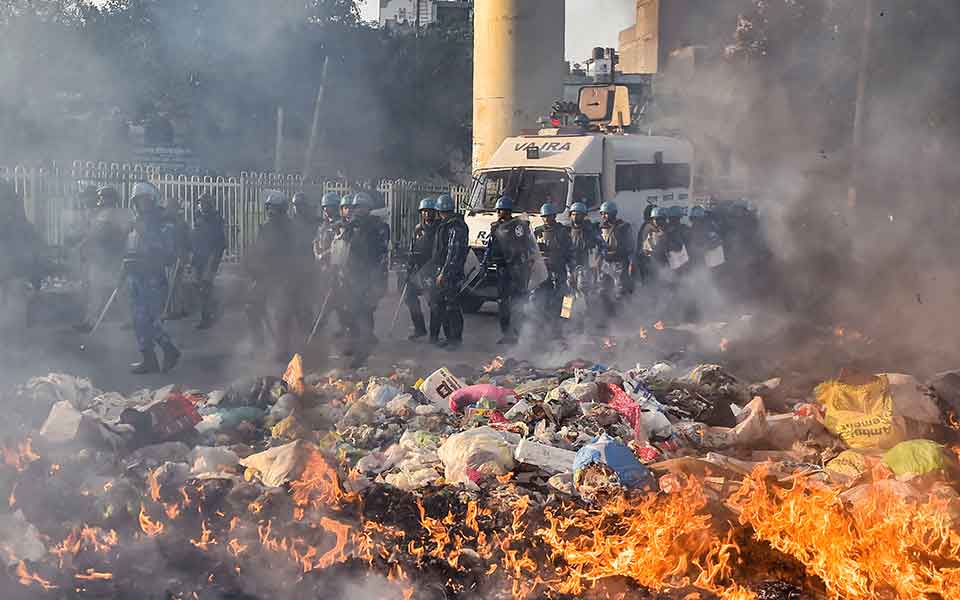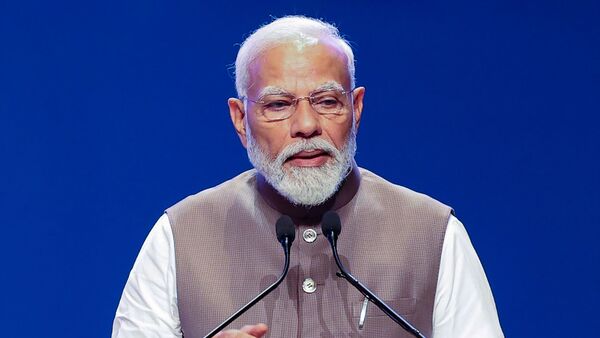New Delhi (PTI): Delhi experienced its cleanest air in almost two years on Tuesday, as persistent rain and favourable wind conditions pushed the city's air quality into the 'good' category for several hours.
According to the Central Pollution Control Board (CPCB), the 24-hour average Air Quality Index (AQI) settled at 51 at 4 PM -- just into the 'satisfactory' range.
Earlier in the day, the city's AQI hovered between 48 and 50, consistently registering in the 'good' category until mid-afternoon. This marked the cleanest air Delhi has seen since September 10, 2023, when the AQI was recorded at 45.
Delhi typically records its best air quality during the monsoon season, usually between July and September.
Last year, the lowest AQI was 52 in mid-September, and only one 'good air' day was logged in all of 2023. In contrast, 2020 -- a year impacted by COVID-19 lockdowns -- saw five such days.
However, officially, a day is only considered a 'good air day' if the 4 PM AQI falls within the 0-50 range.
While the 4 PM bulletin narrowly missed the cut, Tuesday's air quality still marked a rare improvement in the city's typically polluted atmosphere.
In terms of weather, the India Meteorological Department (IMD) reported light to moderate rainfall across Delhi on Monday, with Safdarjung recording 10.2 mm in 24 hours.
Heavier showers were seen in Palam (28.2 mm and Ayanagar 31.2 mm. On Tuesday, rainfall was more scattered, with some stations like Mungeshpur and Mayur Vihar recording only trace amounts.
So far in July, Delhi has received 98.4 mm of rainfall, significantly below the monthly average of 209.7 mm. Nonetheless, the IMD has predicted that light to moderate rain will continue over the next few days, potentially supporting cleaner air.
Temperatures remained pleasant on Tuesday, with the maximum touching 33.9 degrees Celsius, a degree below normal, and the minimum dropping to 24.5 degrees Celsius, which is three notches below the average for this time of year.
The Centre's Air Quality Early Warning System predicts that Delhi's air quality will remain in the 'satisfactory' range at least until July 18, possibly dipping to 'moderate' in the days following.
Let the Truth be known. If you read VB and like VB, please be a VB Supporter and Help us deliver the Truth to one and all.
New Delhi: Over the past five and a half years, India’s major airports have witnessed nearly 2,800 bird-hit incidents, with Delhi, Mumbai, and Bengaluru topping the list, according to data recently shared by the Ministry of Civil Aviation in the Rajya Sabha.
The data, cited by Deccan Herald on Sunday, showed that the Delhi airport reported the highest number of bird-hit cases, recording 695 incidents between 2020 and June 2025. Mumbai’s airport followed with 407 cases, while Bengaluru’s Kempegowda International Airport witnessed 343 cases.
Other airports on the list include Ahmedabad (337), Chennai (205), Kolkata (193), Bhubaneswar (150), Pune (145), and Thiruvananthapuram (125).
An analysis of the data shows that bird-hit incidents were lower during 2020 and 2021—years impacted by COVID-19-related flight restrictions—but rose sharply in subsequent years.
There were 309 bird-hit cases in 2020, which increased to 354 in 2021, 588 in 2022, and peaked at 709 in 2023. However, the number saw a slight decline in 2024, falling to 609. In the current year, up to June, 238 incidents have already been reported.
In a written response to AAP MP Swati Maliwal, Minister of State for Civil Aviation Murlidhar Mohol stated that the Civil Aviation Requirement (CAR) mandates the development of a Wildlife Hazard Management Plan (WHMP) to ensure safety of aircraft operations.


_vb_06.jpeg)


